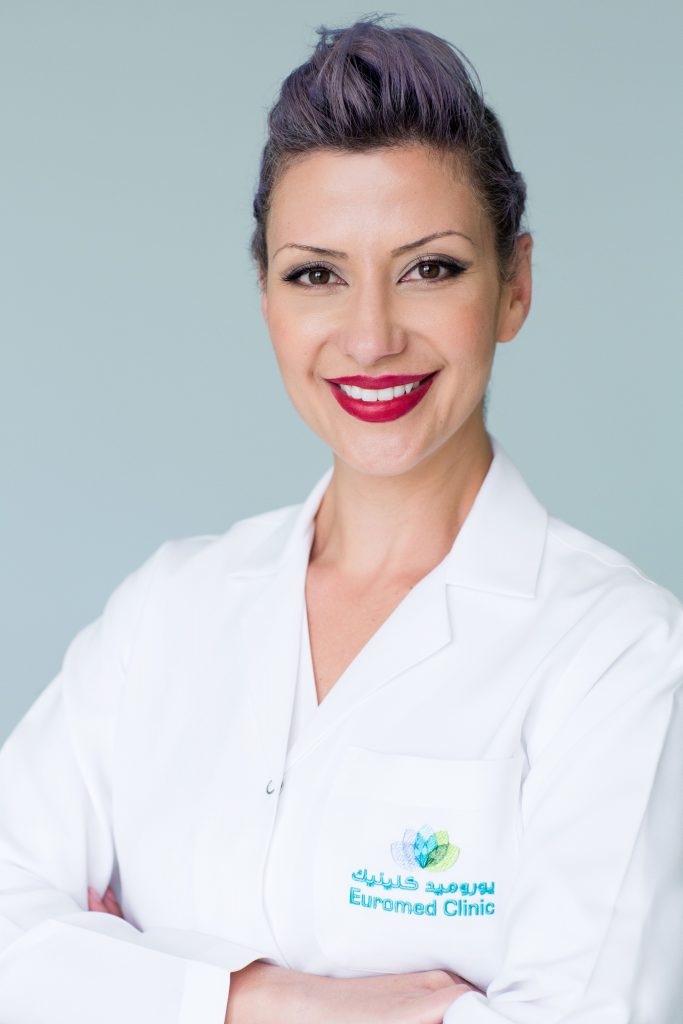Dental Hygiene 101
It took me years to find a great dentist in Dubai – and one thing I love about Dr Sofia Aravopoulou is the fact that she always gives you more than one solution, and actually explains everything to you so you’re knowledgeable about everything.
– Dr Sofia is a General Dentist and Implantologist at Euromed Clinic Dubai www.euromedclinicdubai.com
How important is dental hygiene? How often should we get a dental hygiene treatment? What makes one a good one?
Plaque, which is a combination of oral microbs and their by-products, is constantly forming not only on the teeth but also in the gingival sulcus – the space that exists between teeth and gums. As the time passes, ions from saliva, such as calcium and phosphorus, precipitate in the soft plaque and harden it creating tartar. Once this is formed, it cannot be removed, creating both a mechanical and microbiological irritation to the gums leading to gingival inflammation (gingivitis), usually demonstrated by swollen and bleeding gums.
If the irritation persists and a proper hygiene is not performed by a dentist, the inflammation extends and includes the supportive system of the leading to the destruction of the whole system, which can eventually cause bone loss, halitosis (bad breath) receding gums and tooth loss.
But if the tartar and the reactive tissue is properly and regularly cleaned from the teeth and the space between the teeth (gingival sulcus) and gums by the dentist, the irritation is removed and the gums have the ability to heal and become healthy once again.
In healthy individuals it is advisable to have dental cleaning every six months. People suffering with a condition called periodontitis (inflammation of the gums and supporting structures of the teeth) need to visit the dentist on average every four months. As periodontitis is multifactorial disease and caused by many contributing factors including genetic, environmental and lifestyle, this means that each patient needs a unique treatment plan, so it is important to allow the dentist to guide and advise on the safest and most appropriate intervals between appointments.
The best dental hygiene treatments remove all the debris and the tartar from both the teeth and the gingival sulcus in order for the tissues to heal .If something is left in the sulcus, due to less than thorough and detailed scaling, the tissues will not be able to heal properly and the destruction will progress deeper. In some cases, where the micoflora is very aggressive, the use of lasers after the scaling may be very beneficial for the patients as the lasers cause destruction of the microbs in the sulcus and also deeper in the gums. In addition the lasers can cause biostimulation in the areas that are treated, which in turn ensure the entire area will regenerate faster.
Then it is up to the patients to follow proper maintenance at home with brushing as well as regular use of floss and interdental brushes.





